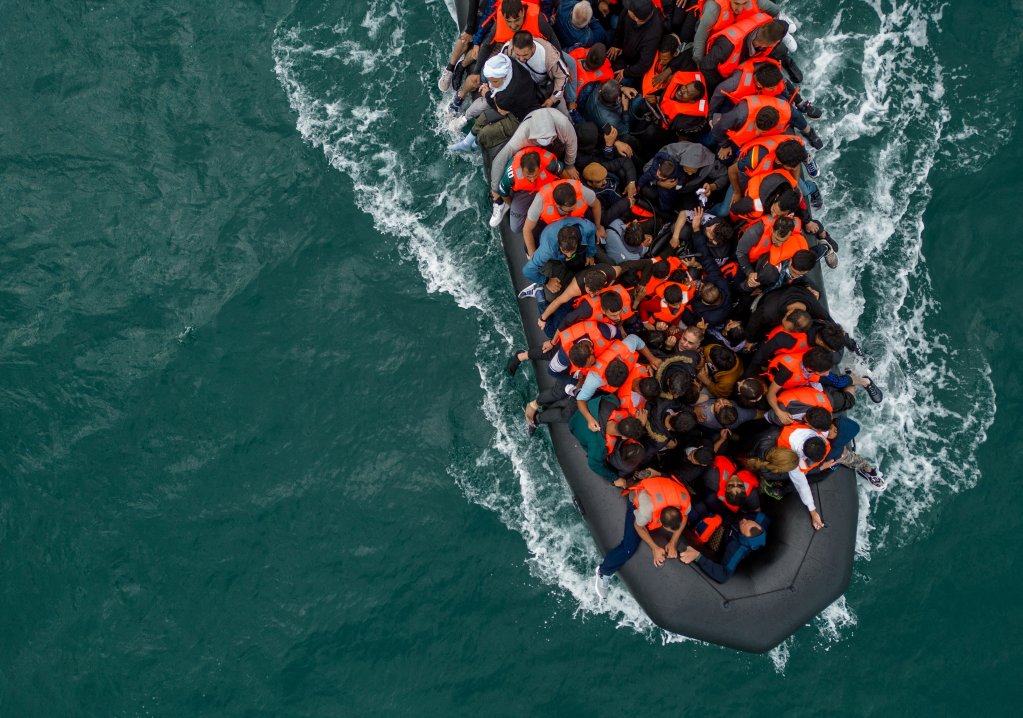A family of three are the first migrants to have been sent from France to the UK under the new 'one in, one out' deal agreed between France and Britain this year. Four migrants have so far traveled in the other direction from the UK to France.
News agencies reported that a family of three, including a small child, are the first to have arrived under the deal known as 'one in, one out,' said a British government official, who asked to remain anonymous.
No further details about the group are known at this point, reported the French news agency Agence France Presse (AFP). The deal was negotiated in July and came into force in August, but exchanges only actually began last week.
On Wednesday, French authorities had reportedly told AFP anonymously that it was proving difficult to find suitable candidates that would be eligible to be sent to Britain. A French news portal, France Bleu also talked to migrants in Calais who told reporters they had applied to be admitted to the scheme but had not heard anything.
Read AlsoUK deports first migrant to France under 'one-in, one-out' scheme
Difficulties qualifying?
Those working with organizations supporting migrants, who are critical of the deal, also said that in order to qualify to be sent from France to the UK, you have to have a valid identity card and be registered, something that many migrants waiting in Calais to cross on small boats are not. Therefore, the organizations said they didn’t believe it would have the deterrent effect promised by government officials.
The British Home Office (Interior Ministry) told AFP that they believed the transfer of the small family from France to the UK represents the "critical first steps" and would provide a "clear message to people–smuggling gangs that illegal entry into the UK will not be tolerated."
The British government said it would "continue to detain and remove those who arrive by small boat. And we will work with France to operate a legal route for an equal number of eligible migrants to come to the UK subject to security checks."
Read AlsoChannel: At least four migrants die in crossing attempts in two days
Political consequences of arrivals in Britain
Although more than 1,000 migrants crossed the Channel successfully last weekend, British government data shows that no one has arrived since, up until and including September 23 (Tuesday).
Since the beginning of this year, more than 32,000 people have arrived on small boats, meaning the numbers of arrivals, if they continue at the current rate, are likely to surpass last year’s full-year total which stood at 37,000.
Although the number of migrants who arrive via the Channel is only a fraction of the overall migration into the UK, it is the Channel arrivals that have proved to be the biggest thorn in the side of successive governments. Attempts and promises to "stop the boats" have so far failed, and that is fueling the rise and success of right-wing populist parties like Reform, which is currently ahead in the opinion polls.
Read AlsoExplainer: How the UK houses asylum seekers and why it is so contentious

Scaling up?
In addition to hoping that this new deal will have a deterrent effect, the British government is also trying to speed up the processing of asylum claims of people who are already in the UK, to try and reduce their reliance on housing asylum seekers in hotels.
The British and French governments are hoping to gradually scale up the number of exchanges. The pilot is due to operate until at least next June. A recent report by the British think tank British Future suggested that the only way to guarantee the success of such a scheme was to scale it up quickly. If that were done, around 75 percent of crossing attempts would be stopped, the report suggested.
Groups like Asylum Now beg to differ. They say the only real way to stop the boats is to open up more safe and legal routes into the UK.
With AFP, AP, dpa
Read AlsoOne female migrant dies attempting to cross Channel
